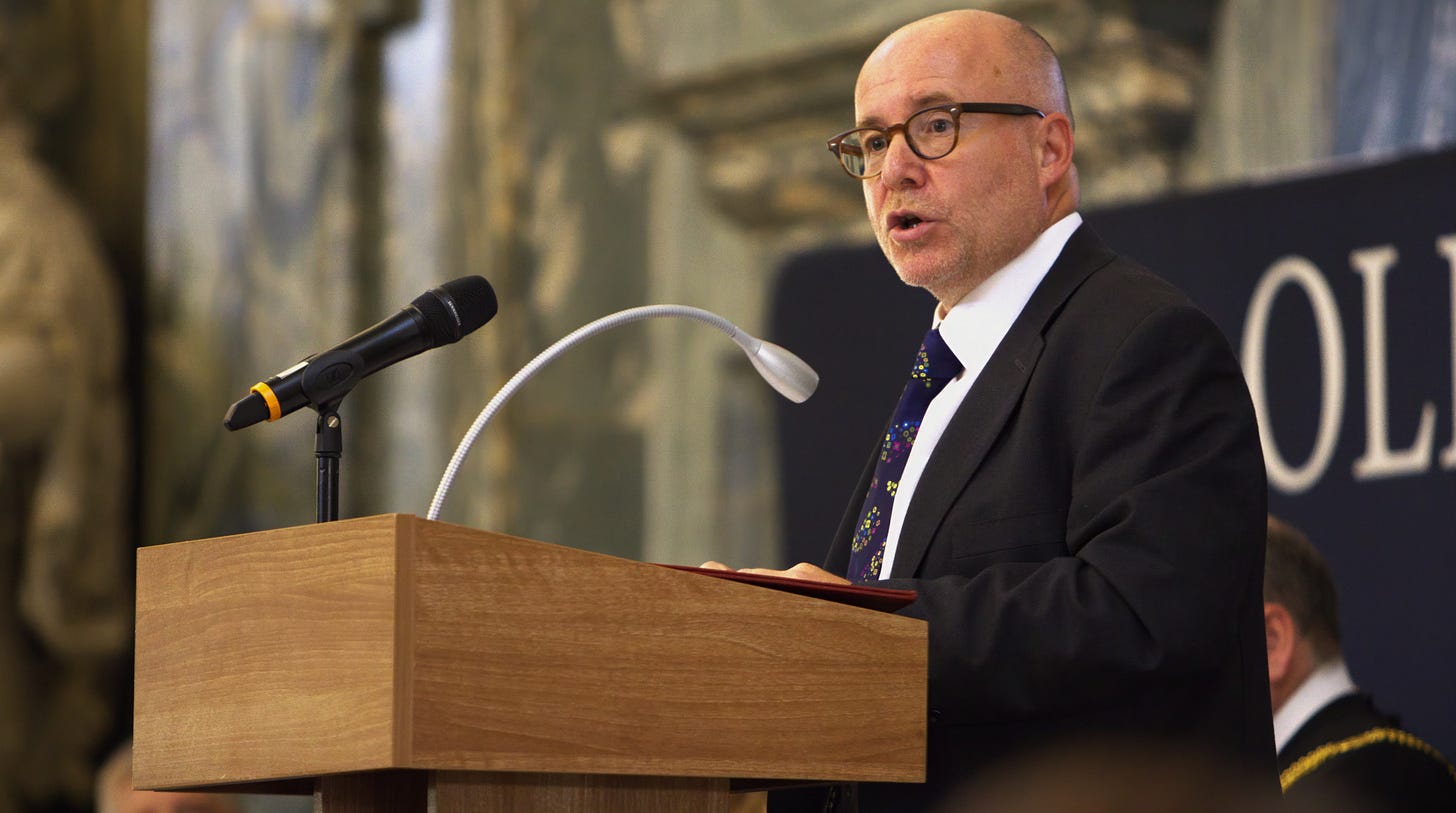Attacks on judges ‘dangerous’
Attorney general says rule of law is vital to stability and prosperity
Attacks on the judiciary by opposition politicians and others are as misplaced as they are dangerous, the attorney general said last night.
Lord Hermer KC made his remarks during a speech on the rule of law delivered to City of London office-holders in the hall of the Old Bailey.
He said:
There has been a worrying tendency in recent times in this country to attack the judiciary — to seek to undermine them by portraying them as partisan.
We have seen an increase in personal attack on individual judges, not only by newspapers but by British politicians — including frontbenchers in parliament — in terms that would have seemed scarcely believable even only a few years ago.
This has been accompanied by an increase in physical and online threats to judges, mirrored in some appalling threats to lawyers.
These attacks are as misplaced as they are dangerous.
Allow me to state the obvious. While no institution in this country should ever be free from appropriate scrutiny or accountability, we are blessed in Britain to have what I truly believe to be the world’s finest judiciary.
That makes these attacks even more pernicious, seeking to undermine trust in an institution whose value to our society has been proven time and time again.
Rule of law
Hermer’s main theme was the rule of law. Respect for its legacy had not just made the United Kingdom a nation of laws, he said. It was also a trusted place to do business. He argued that, in a highly uncertain world, the UK was “extraordinarily well placed to offer investors from across the globe the stability and certainty they crave”.
The success of the City of London wasn’t a matter of chance, he observed. It had happened because of trust in our institutions, in our courts and in the rule of law.
A previous Conservative government had been willing to break international law “in a specific and limited way,” Hermer recalled. The present government was restoring the UK’s reputation by making it clear that we would uphold our international obligations.
Hermer said:
For centuries, English commercial law has been the bedrock of Britain’s economic success. Its principles — freedom, fairness, and certainty — have stood the test of time. It’s why English law is the global standard for international business.
It was here, famously in Salomon v A Salomon & Co Ltd, that the principle of separate legal personality was established. It meant that a company could stand on its own, apart from its owner. That principle, forged in our courts, unlocked the rise of limited liability — and with it the explosion of entrepreneurship, investment and innovation.
He continued:
The rule of law is the silent partner in every contract signed, every investment made and every job created.
Where the rule of law is arbitrary, markets wither. When contracts are not enforced, investment dries up. And when rights are not protected, it is ordinary people — workers, families — who suffer the most.
In a world marked by volatility, from geopolitical tensions to technological disruption, certainty is a rare and valuable commodity. It is the foundation on which our future will be built.
But the rule of law was not only about contracts and courts. It was about people:
A society governed by law is one in which human rights are respected, where individuals can challenge unfair treatment and where the vulnerable are protected…
When people feel secure in their rights, they are more likely to participate in the economy, to start businesses, to take risks and to innovate…
The extension of the rule of law into the realm of precarious employment by the Employment Rights Bill will make sure that more people are in good jobs, with improved prospects for their future. A valued workforce is a productive workforce. Both are needed for a fair and prosperous society.
“The rule of law is not a footnote to economic policy,” Hermer concluded. “It is its foundation. It is what allows markets to function, contracts to be honoured and innovation to flourish. It is what gives investors confidence, workers protection and entrepreneurs opportunity.”
It was our responsibility to carry it forward.



The UK became a financial centre, argues Lord Hermer, because people trust our legal system. Agreed.
What does it say, then, that we are losing our place as a financial centre? People don’t trust our legal system as much as they once did. That is because the rule of law is not the same as the rule of judges. Power has been handed from law, generated by politicians, to discretionary decisions made by the courts under the guise of vague principles.
Do we really need judicial review of a decision to build another runway at Heathrow? It’s literally an asphalt strip, but somehow red tape makes it cost £14B and a few decades. I wouldn’t invest if I were worried that my investment would just be given the “No” stamp by a judge.
Return power back to Parliament and we will restore trust in our legal system. Then we will grow as a financial centre once again.
It is not an attack on the rule of law to disagree with the particular decision of a particular judge, nor even to consider whether that judge may have been influenced by considerations outside the strict interpretation of the law. A fortiori, we may respect the law, and still disagree with the politically appointed Attorney General. Certainly it is demonstrably true that the rule of law, and respect for property rights, are necessary but not sufficient conditions for a successful economy. However. the AG betrays his motivation when he pleads the rule of law in support a most contentious piece of proposed legislation.